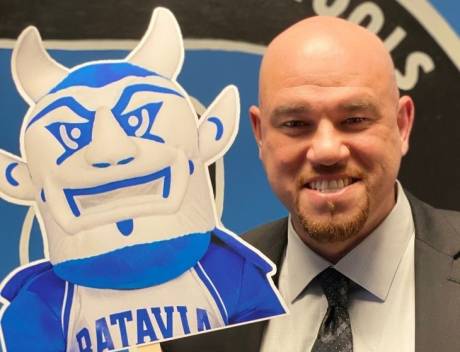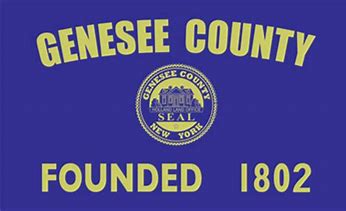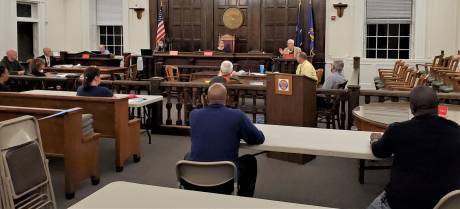Batavia school superintendent offers recommendations to move 'public expression' policy forward
The Batavia City School District Board of Education continues to explore the most effective ways for citizens to make their feelings known during its monthly meetings.
District Superintendent Anibal Soler Jr., following up on Board President Alice Ann Benedict’s desire to open the communication lines with the public, said he has come up with several recommendations that could be included in a “public expression” policy.
The board met on Monday night at the high school library.
Soler said his suggestions will be forwarded to the district’s Policy Committee for review and “vetting” before coming back to the full BOE for approval.
“The law technically allows us to have no public participation (during board meetings), but we are making a smart effort to make sure that there is (time for public comments) and I think that is a compliment to the board’s leadership,” Soler said.
The Batavia BOE, according to its policy, encourages public participation on school-related matters at board meetings, setting aside 30 minutes at the beginning of the sessions.
Beyond that, Soler said, currently there aren’t any guidelines or details in place to govern the public sessions.
He said his recommendations were derived from looking at the policies of similar-size districts, such as Geneva and Niagara Falls, as well as the large school districts of Buffalo and Rochester.
They are as follows (subject to review by the Policy Committee):
- Persons wishing to address the board shall advise the board president prior to the scheduled starting time of the meeting. The request shall be made in writing on a form provided by the district clerk and shall include the name of the speaker, their address, name of organization represented (if any), and the topic to be addressed. Any group or organization wishing to address the board must identify a spokesperson.
- Presentation should be as brief as possible. Each speaker will be permitted to speak for three minutes. Speakers may comment on any matter related to district business. The board cannot and will not permit public discussions involving individual district personnel or students. Persons wishing to discuss matters involving individual district personnel or students should present their comments and/or concerns to the teacher, the building administrator or superintendent during regular business hours.
- All speakers are to conduct themselves in a civil manner. Obscene language, libelous statements, threats of violence, statements advocating racial, religious, or other forms of prejudice will not be tolerated.
- Persons making presentations at a board meeting will address remarks to the president and may direct questions or comments to board members or other district officials only upon the approval of the president. Board members and the superintendent shall have the privilege of asking questions of persons who address the board.
- Without opening the floor to general audience participation, the board president may call upon staff members or other specially qualified persons whom the board wishes to hear in relation to a specific agenda topic.
- Questions and comments from the public concerning matters which are not on the agenda will be taken under consideration and referred to the Superintendent for appropriate action. Persons wishing to have matters included on the agenda shall contact the superintendent in accordance with Policy 1510, Regular Board Meetings and Rules (Quorum and Parliamentary Procedure).
Soler said the board president would rule on matters such as the time to be allowed for public discussion and the appropriateness of the subject being presented. The president also would have the right to halt any presentation that violates the adopted policy.
The form for those wishing to speak at BOE meetings must be filled out in advance. It can be obtained by contacting the superintendent’s office at (585) 343-2480.
In another development:
Soler reported that the principals at the four schools are continuing to work toward maximizing learning, with John Kennedy Principal Brian Sutton exploring the possibility of having all second-graders back in the building for in-person instruction every day.
"We're trying to manage which grades can (go back to in-person learning) and which grades can't, but unfortunately some of our classes have higher enrollments and we can't bring everybody back," he said.
At Batavia High, Principal Paul Kesler are looking at students who are 100 percent virtual but are having difficulties with their studies, with the goal of shifting them back into the school -- even if it isn't on an everyday basis -- as long as their parents are in agreement.



